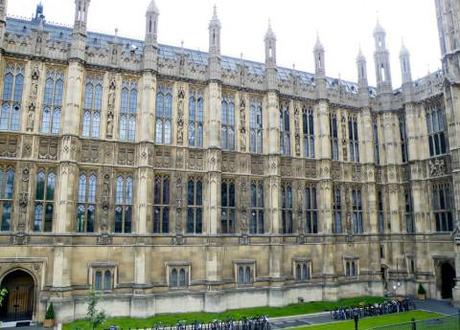
Parliament. Photo credit: Stuart Bryant
Sir George Young, Leader of the Commons, is on record as saying, “We do want to monitor it to see if we’ve got the threshold either too high or too low.” It is, of course, too early to tell whether the target of 100,000 votes is hopelessly ambitious or woefully too low as a mechanism for excluding what the Labour opposition have reportedly called “crazy ideas”.
Interestingly, it is often said that, by the plebiscite, most of us would vote for the reintroduction of capital punishment, however crazy that may be. Certainly, a Harris poll in the aftermath of the Baby “P” fiasco in 2009 showed that 54 percent favoured its return. That aside, it is perhaps significant that the most popular measure overall by 1800 BST, according to the BBC, was a proposal to prevent the reintroduction of the death penalty, with 2,700 votes.
The threshold is clearly important and there will be inevitably some barmy ideas. This is not, of course, the first time that e-petitions have been trailed. Tony Blair famously introduced a similar scheme following which 50,000 suggested that Jeremy Clarkson should become PM. A petition against road pricing was the most popular proposal with more than 1.8 million votes, leading to a government U-turn.
Experience, therefore, suggests that the most attractive ideas will be those pitched in the middle of the road. The death penalty debate has a long way to go before it reaches the magic number. If it does come close, however, arguably it does deserve a debate. The last time it was debated by MPs was in 1994 but, in honesty, the outcome is foregone: The UK’s signature on 1999 European Convention of Human Rights protocol probably precludes any movement on the issue.

